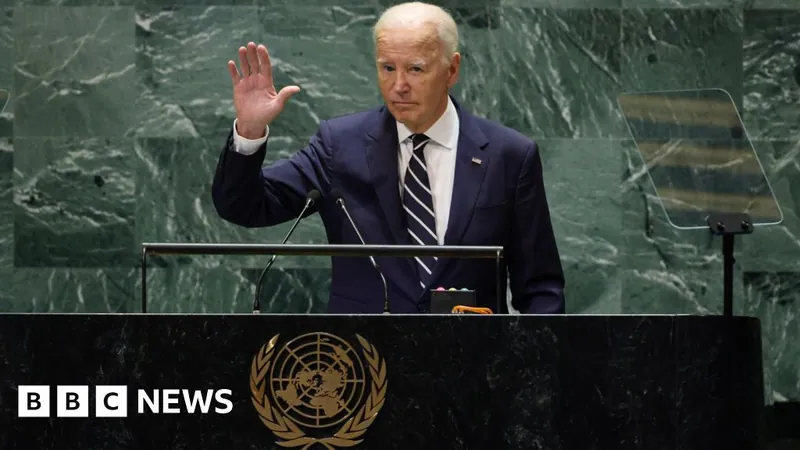
Biden Faces Daunting Challenge as Israel and Hezbollah Stand on Edge of War
2024-09-24
Biden Faces Daunting Challenge as Israel and Hezbollah Stand on Edge of War
In a perilous moment for the Middle East, President Joe Biden is grappling with escalating tensions between Israel and Hezbollah, even as he desperately seeks to prevent a larger conflict from worsening. During his recent address at the United Nations, Biden reiterated his unwavering commitment to pursuing a diplomatic solution, urging restraint from both sides.
“A diplomatic solution is still possible. In fact, it remains the only path to lasting security,” Biden declared, stressing that “full-scale war is not in anyone’s interest.” However, despite his appeals, the region seems to have descended into chaos.
On Monday, Israeli forces conducted a massive wave of airstrikes across Lebanon, reportedly killing over 500 individuals, making it one of the deadliest days since the country’s brutal civil war ended more than thirty years ago. In response, the Iran-backed militant group Hezbollah retaliated fiercely, firing hundreds of rockets into northern Israel, destroying homes and incinerating streets.
The situation is dire, with the ongoing hostilities creating a humanitarian crisis and displacing tens of thousands of civilians on both sides. The Biden administration has been caught in a difficult position, attempting to rein in Israel—its key regional ally—while also trying to deter Hezbollah from further escalation. Despite longstanding U.S. diplomatic efforts, including attempts to mediate between Israel and Hamas in Gaza, the conflict remains unresolved.
Israeli officials argue that their actions are necessary to neutralize the threat posed by Hezbollah, while the militant group claims its attacks are aimed at deterring Israeli actions against Palestinians in Gaza. This complicated dynamic has led to increasing frustration among those tasked with managing the crisis.
Further compounding the issue, criticism of the U.S. administration's influence has grown, with several observers alleging that the Biden White House has failed to condition military support on changes in Israeli policy. Nonetheless, administration officials insist that their commitment to Israel's defense is steadfast and unequivocal.
As tensions escalate, Secretary of State Antony Blinken has made a series of high-profile trips to the region; however, his recent visit marked the first time he did not meet with Israeli officials during a critical moment. Critics are calling for a more proactive approach from Washington, emphasizing the need for tangible results, particularly in brokering a ceasefire between Hamas and Israel.
With only four months left in Biden's presidency, the urgency to achieve a breakthrough in the region is palpable. National Security Advisor Jake Sullivan affirmed that the president has not lost hope in reaching a peaceful resolution, stating, “There have been difficulties and setbacks... but we’re determined to keep at it.”
Behind the scenes, U.S. diplomats are working tirelessly to present allies with potential frameworks for resolving the Israel-Hezbollah crisis. However, they have firmly opposed an Israeli ground invasion of Lebanon, asserting that escalation would not lead to stability.
Experts warn that the current conflict could spiral into a full-blown war, with broader implications for the already volatile Middle East. The world watches closely as Biden navigates this precarious situation, grappling with a reality where diplomatic solutions seem ever more elusive.
Will Biden's efforts succeed in averting disaster, or is the region on the brink of a catastrophic confrontation? The coming days may hold the answers.









 Brasil (PT)
Brasil (PT)
 Canada (EN)
Canada (EN)
 Chile (ES)
Chile (ES)
 España (ES)
España (ES)
 France (FR)
France (FR)
 Hong Kong (EN)
Hong Kong (EN)
 Italia (IT)
Italia (IT)
 日本 (JA)
日本 (JA)
 Magyarország (HU)
Magyarország (HU)
 Norge (NO)
Norge (NO)
 Polska (PL)
Polska (PL)
 Schweiz (DE)
Schweiz (DE)
 Singapore (EN)
Singapore (EN)
 Sverige (SV)
Sverige (SV)
 Suomi (FI)
Suomi (FI)
 Türkiye (TR)
Türkiye (TR)